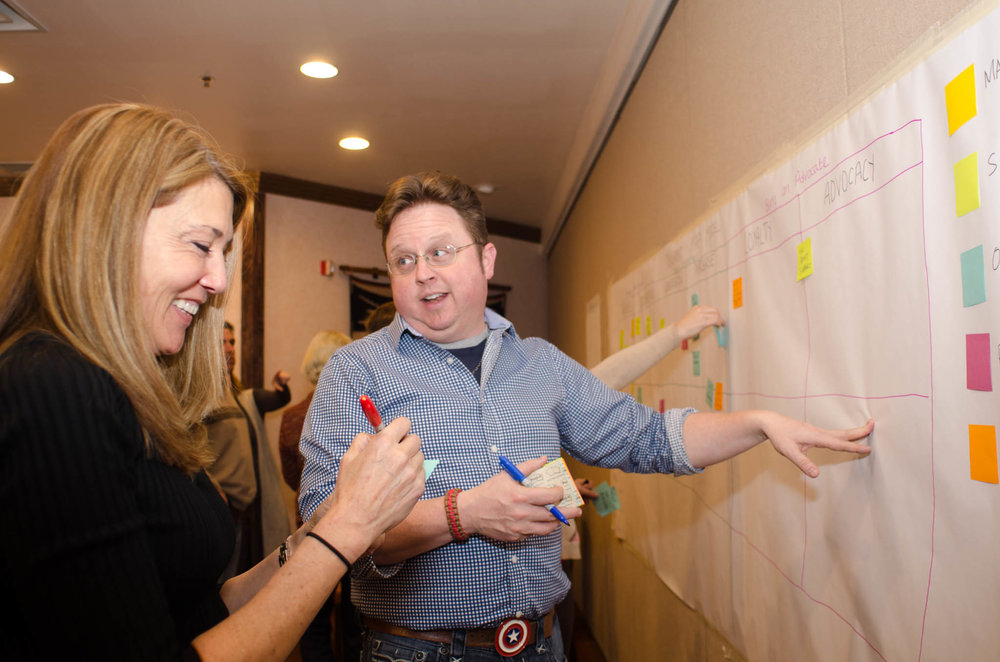Amanda Finke discusses a customer profile in BayWa r.e.’s CX workshop – Photo by Tom Miller Sales Summit, Hotel Santa Fe, Photo courtesy Hotel Santa Fe
There were a lot of new faces at BayWa r.e.’s Sales Summit this year. As new hires shook hands with the old guard, they chatted about their sales regions – spanning New York to California – their unique experiences in the solar industry and everyone agreed that things feel different – that change is in the air.
Installers now need to navigate myriad challenges, from the boom in storage technologies and complexity of installs, to understanding the future of grid management with micro and smart grids.
Talking to sales reps at the summit, it was clear that they felt responsible for keeping their customers informed and helping them face these new challenges.
“They look to us to help them make rational business decisions and to help them grow their business the way they want to grow it,” said Cynthia Khatib, VP of Commerical Sales.” They don’t know what the competition’s doing. They don’t know how to position themselves to make sure they’re going to exist.”
Seeing the challenges on both sides – installer and distributor – BayWa r.e. Solar Systems as an organization is focusing a lot on Customer Experience – or CX – and the sales team was gathered in Santa Fe to dig a bit deeper into this topic.
Katie Lukas, of Cronin and Company lead the workshop. She broke the sales reps into teams, tasking them to wrap their heads around the question: “Who is your customer, and what are their needs, really?”
To begin, the sales reps built a profile of an average customer (“Doug”) and tried to visualize, from the customer’s perspective, what exactly “Doug” experiences at each step in “Doug’s” Customer Journey, from awareness through loyalty, and what BayWa r.e. can do to positively impact “Doug’s” experience.
“The point of the exercise was: how do you reframe the conversation?” said Katie when I caught up with her after the summit. According to Katie, these exercises reframe our perspectives, “so that every time [you] encounter a customer you’re thinking about their goals, and their objectives, and their daily work life, and whatever else they might be encountering in their day.”

Kim Lawton and Keith Ostwald at the CX workshop, Photo by Tom Miller
Katie stressed that “empathizing with the customer, and making sure that you’re paying attention to his or her needs at every step of the way, will ensure you’re going to give the customer and your organization the most value.”
My takeaway from the workshop was that CX is a great tool and, like with many things, success is a two-way street. In the context of Cynthia’s comments – about how her customers look to BayWa r.e. to help them make “rational business decisions” – empathy-driven CX can only take you so far. The other key component is knowledge sharing between an installer and their trusted distributor. In this case, the burden of success is on both parties. CX thinking is applicable to just about any organization providing products or services to their customers.




